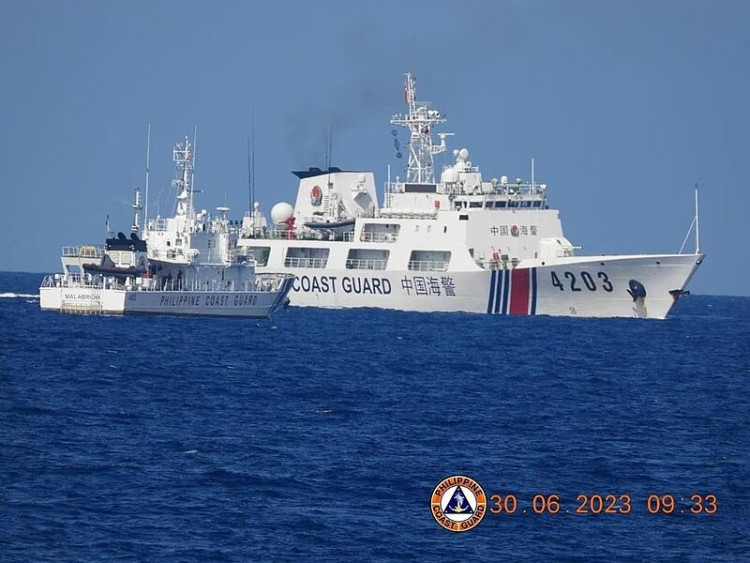The Philippines and China have traded accusations over a collision involving their coast guard vessels in the disputed South China Sea. The latest incident occurred near the Sabina Shoal, a contentious area claimed by both nations, further inflaming an already volatile situation.
The confrontation on Saturday marks the fifth maritime clash between the two countries in just a month. According to Philippine Coast Guard spokesperson Jay Tarriela, a Chinese coast guard vessel deliberately rammed the Philippine cutter Teresa Magbanua, causing significant damage but no injuries. "China Coast Guard vessel 5205 directly and intentionally rammed the Philippine vessel without provocation," Tarriela asserted at a press conference.
China, however, has a different narrative. Liu Dejun, a spokesperson for China's coast guard, claimed that a Philippine vessel, which was "illegally stranded" at the shoal, deliberately collided with a Chinese ship. Liu warned that the Philippines must withdraw or face "resolute" measures from China. "The Chinese coast guard will take the measures required to resolutely thwart all acts of provocation, nuisance, and infringement," Liu said.
The Sabina Shoal, located approximately 75 nautical miles from the Philippine province of Palawan and 630 nautical miles from China, is part of the larger South China Sea area that Beijing claims almost in its entirety. This region is critical due to its substantial oil and natural gas deposits, rich fishing grounds, and its role as a major global shipping route through which $3 trillion worth of trade passes annually.
The Permanent Court of Arbitration ruled in 2016 that China's expansive claims have no legal basis, a decision Beijing has consistently rejected. The ongoing disputes have led to numerous maritime skirmishes and diplomatic confrontations.
Following the latest clash, the U.S. has voiced strong support for the Philippines. Ambassador MaryKay Carlson condemned the incident, asserting that China's actions constitute "dangerous violations of international law." In a statement on the social media platform X, Carlson emphasized that the U.S. stands with the Philippines in upholding international law and condemns the "intentional ramming" of the Philippine vessel.
The Philippines' Coast Guard has stated that it will not withdraw its vessel despite the aggressive actions of the Chinese coast guard. "We will not move our ship despite the harassment, the bullying activities, and escalatory actions of the Chinese coast guard," Tarriela declared.
This latest incident adds to a series of recent confrontations. In April, the Philippines deployed a ship to the Sabina Shoal amid accusations that China was constructing an artificial island. The Philippine maritime council has also reported unsafe maneuvers by Chinese aircraft against civilian patrols over other disputed areas, including the Scarborough Shoal and Subi Reef.
Further complicating the situation, the Philippines has accused China of blocking a routine resupply mission for Filipino fishermen, using water cannons and ramming a vessel transporting essential supplies. These actions reflect the high stakes and escalating nature of the South China Sea dispute.
Both nations have sought to mitigate immediate conflicts through recent diplomatic efforts. Last month, an agreement was reached allowing the Philippines to restock its outpost at the Second Thomas Shoal, which has thus far proceeded without reported clashes. However, ongoing friction and mutual accusations continue to strain relations between the two countries.






